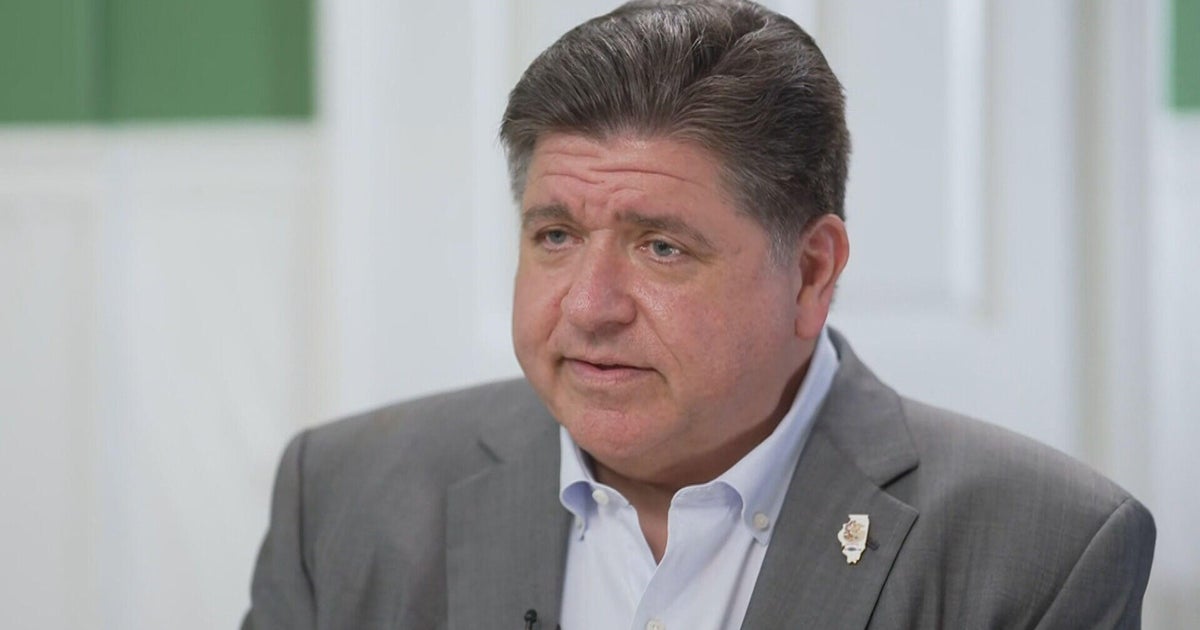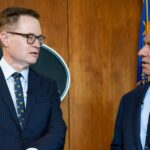In a significant shift toward more direct federal intervention in local law enforcement, President Donald Trump has recently deployed National Guard troops to patrol the streets of Washington, D.C. This move, purportedly aimed at curbing the rising crime rates in the nation’s capital, marks an unusual step in domestic governance. Taking his approach a step further, the President has also voiced intentions to deploy the National Guard in several other major American cities beleaguered by crime, including New York, San Francisco, and Chicago.
This development has sparked a range of reactions from state and city leaders across the political spectrum. During a segment on CBS’s “Face the Nation,” Ed O’Keefe broached the subject with Illinois Governor JB Pritzker, seeking his perspective on the potential federal overreach into Chicago’s local affairs. Governor Pritzker expressed significant concern about President Trump’s proposal, emphasizing the need for respecting the autonomy of states and cities to manage their law enforcement as they see fit.
Governor Pritzker’s reaction is nestled in a broader context of ongoing debates over federalism and the extent of power that the federal government should have in local governance. Historically, the deployment of National Guard troops in states has usually occurred at the request of the state’s governors or when there is a clear overriding federal interest, such as enforcing civil rights or providing disaster relief.
However, President Trump’s suggestion to deploy the National Guard without explicit invitations from the local governments is seen by many as an unprecedented encroachment on state and local authority. This raises important questions about the balance of power between federal and local governments, a topic that has been a cornerstone of American political discourse since the country’s founding.
Critics of the move argue that deploying the National Guard in cities against the wishes of state and local governments could inflame tensions and undermine the work of local law enforcement agencies. They worry that such actions might not only be counterproductive but could also erode trust in governmental institutions, crucial for the effective governance of democratic societies.
Supporters of the President’s approach argue that drastic measures are necessary to restore order and safety in cities that have seen a spike in violent crime. They point to the broad powers vested in the federal government to ensure domestic tranquility as a justification for this approach. According to this view, when local authorities are unable or unwilling to tackle crime effectively, the federal government has a responsibility to step in and protect its citizens.
The debate around this issue encapsulates a number of crucial themes in contemporary American politics, including discussions about the proper role of government, the rights and powers of states, and the best strategies for ensuring public safety while also protecting civil liberties.
This complex interplay of legal, political, and social issues is set against the backdrop of an America grappling with numerous challenges, including systemic inequities, concerns about police conduct, and the broader movement for social justice reforms. These tensions are palpable in cities like Chicago, where the relationship between community members and local police has been fraught with issues for decades.
As the nation continues to navigate these turbulent waters, the decisions made in the coming weeks and months regarding the deployment of the National Guard could have long-lasting implications for the fabric of American political life and the nature of federal-state relations.
Furthermore, the conversation also delves into the practical logistics and possible consequences of deploying troops in cities. There is an overarching concern about the readiness and appropriateness of the National Guard in handling civil unrest and building community relationships, tasks traditionally managed by police forces trained specifically in community policing methods.
In addition to enforcing law and order, there is also an urgent need to address the root causes of crime in these cities. Solutions focused solely on security measures might not be effective unless coupled with comprehensive community support services, including education, healthcare, and economic opportunities, which are essential for long-term stability and peace.
As “Face the Nation” highlighted these pressing issues through its interview with Governor Pritzker, it became clear that the unfolding situation demands a thoughtful, informed, and nuanced response from all levels of government. The coming days will undoubtedly be critical in shaping the trajectory of America’s civic and social landscape, with pivotal implications for the principles of governance and the eternal struggle to balance order with liberty.









